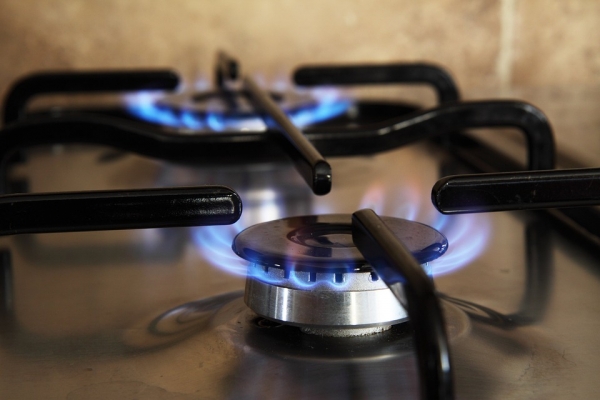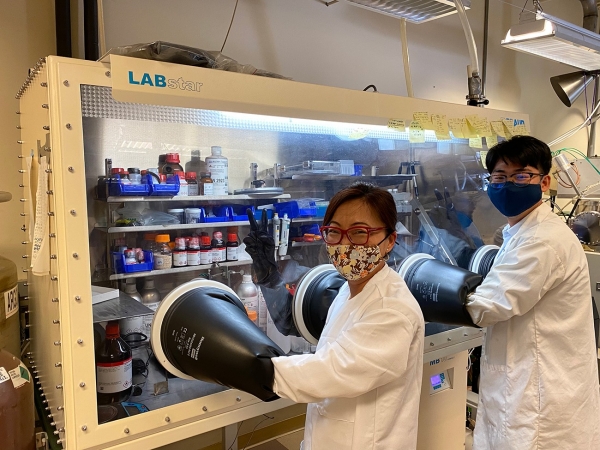

To power our increasingly electrified society, energy storage technology must evolve and adapt to meet the growing demand. Lithium-ion batteries, already essential to myriad technology, will require dramatic improvements in high energy density, safety, temperature resilience, and environmental sustainability in order to provide the type of emission-free future that so many envision.
A team of engineers led by Y. Shirley Meng, a professor at the Pritzker School of Molecular Engineering has demonstrated liquefied gas electrolytes that can simultaneously provide all four essential properties. The research, performed between Meng’s University of California San Diego and Chicago labs, provides a path to sustainable, fire-extinguishing, state-of-the-art batteries that can be developed at scale. Their work was published in Nature Energy.
Yijie Yin, a nanoengineering Ph.D. student and co-first author of the paper, shares how this work came about. “In 2017, a team of UC San Diego nano engineers discovered hydrofluorocarbon molecules that are gasses at room temperature and will liquefy under a certain pressure,” Yin said. “They then invented a new type of electrolyte, which is called ‘Liquefied Gas Electrolyte’. The related results were published in Science.
Lithium-Ion Batteries are very dangerous batteries that could explode very easily! These batteries also contain very harmful chemicals which could easily contaminate the soil and toxify the water when these batteries come in contact. This is cool that they are trying to make sustainable batteries to help Mother Earth!
Author: Sri Nihal Tammana
Source: University of Chicago
Professor Y. Shirley Meng (left) and her team, including Ph.D. student Yijie Yin (right) (PC: Baharak Sayahpour)


© copyright 2022 by Recycle My Battery